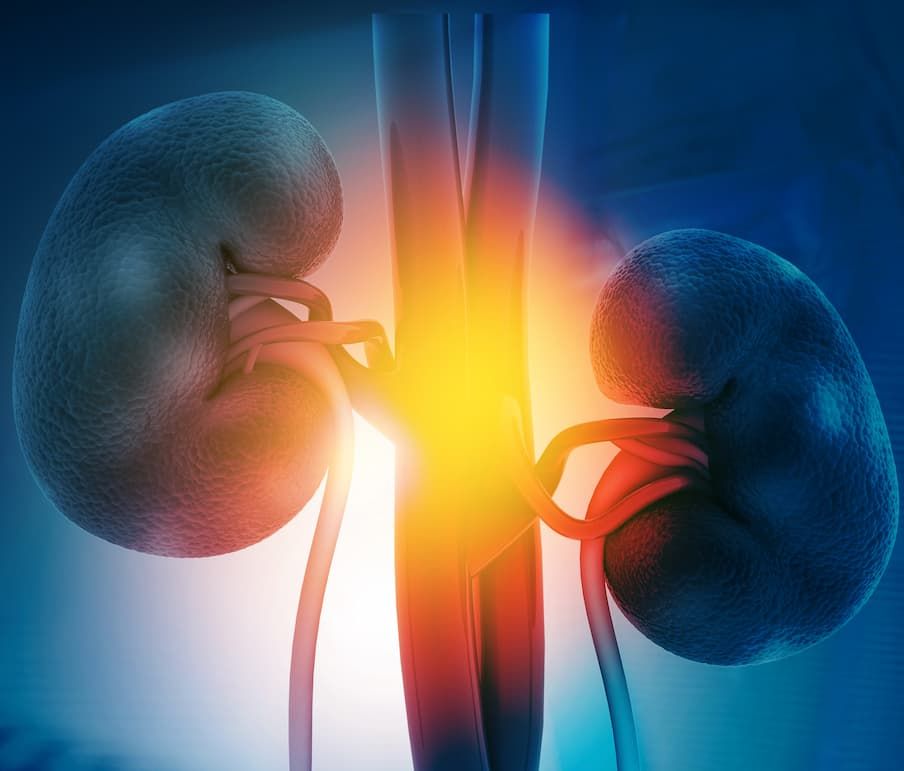Belzutifan Plus Lenvatinib Improves PFS/ORR in Advanced Pretreated RCC
Belzutifan/lenvatinib also showed a favorable trend toward improvement for overall survival in this advanced renal cell carcinoma population.
Belzutifan/lenvatinib also showed a favorable trend toward improvement for overall survival in this advanced renal cell carcinoma population.

Belzutifan (Welireg) combined with lenvatinib (Lenvima) improved progression-free survival (PFS) compared with cabozantinib (Cabometyx) in patients with advanced renal cell carcinoma (RCC) who had progression on or after anti–PD-(L)1 therapy, according to a press release from the developers, Merck and Eisai.1
In the phase 3 LITESPARK-011 trial (NCT04586231), the belzutifan combination demonstrated a statistically significant and clinically meaningful improvement in PFS vs cabozantinib at a prespecified interim analysis.
Additionally, the treatment statistically significantly improved the objective response rate (ORR), which was a key secondary end point. Furthermore, a favorable trend was observed for overall survival (OS) with the combination, although data did not reach statistical significance at the time of analysis; a subsequent analysis will be conducted per the clinical protocol.
The developers will present these data at an upcoming medical meeting and plan to begin discussions with regulatory authorities.
Notably, cabozantinib was approved by the FDA as therapy for patients with advanced RCC who received prior antiangiogenic therapy and who were previously untreated in 2016 and 2017, respectively.2,3
“Despite recent treatment advances, many patients with advanced RCC may still experience disease progression following treatment with a PD-1/L1 inhibitor,” stated M. Catherine Pietanza, MD, vice president of global clinical development at Merck Research Laboratories, in the press release.1 “These positive results from LITESPARK-011 show the potential of this novel combination to reduce the risk of disease progression or death for patients who are in need of innovative options on or after treatment with immunotherapy.”
LITESPARK-011 is an open-label, randomized trial evaluating the combination of belzutifan and lenvatinib compared with cabozantinib in advanced RCC that progressed after prior anti–PD-(L)1 therapy.
An estimated 708 patients were enrolled in the trial and randomly assigned to receive either belzutifan plus lenvatinib or cabozantinib alone. Belzutifan was given at 120 mg orally, lenvatinib was given at 20 mg orally, and cabozantinib was given at 60 mg orally; all treatments were administered once daily.
Eligible patients had unresectable, locally advanced, or metastatic clear cell RCC with disease progression on or after anti–PD-(L)1 therapy in the first- or second-line treatment of their RCC.4 Receipt of no more than 2 prior systemic regimens, measurable disease per RECIST v1.1 criteria, a Karnofsky performance status of at least 70% at least 10 days before random assignment, and adequate organ function were among additional enrollment criteria.
Exclusion criteria included known central nervous system metastases, known additional malignancy that was progressing or had required active treatment within the past 3 years, moderate to severe hepatic impairment, history of solid organ transplantation, and a pulse oximeter reading of less than 92% at rest.
The dual primary end points of the trial were PFS per RECIST v1.1 criteria as assessed by blinded independent central review (BICR) and OS. The key secondary end points were ORR per RECIST v1.1 criteria as assessed by BICR, duration of response per RECIST v1.1 criteria as assessed by BICR, and safety.
No new safety signals were observed with the combination. The safety profiles of belzutifan and lenvatinib were both consistent with what has been observed in previous studies for each agent individually.
“We are encouraged by the data observed in the LITESPARK-011 trial, which bolster our belief in the role of [lenvatinib] in various combinations as a treatment option for patients [with] advanced RCC,” said Corina Dutcus, MD, senior vice president and oncology global clinical development lead at Eisai.1
References
- Merck and Eisai announce WELIREG (belzutifan) plus LENVIMA (lenvatinib) met primary endpoint of progression-free survival (PFS) in certain previously treated patients with advanced renal cell carcinoma. News release. Merck. October 28, 2025. Accessed October 28, 2025. https://tinyurl.com/2hw7tttt
- Exelixis announces FDA approval of CABOMETYX (cabozantinib) tablets for patients with advanced renal cell carcinoma who have received prior anti-angiogenic therapy. News release. Exelixis. April 25, 2016. Accessed October 28, 2025. https://tinyurl.com/yx23mpmp
- Exelixis announces U.S. FDA approval of CABOMETYX (cabozantinib) tablets for previously untreated advanced renal cell carcinoma. News release. Exelixis. December 19, 2017. Accessed October 28, 2025. https://tinyurl.com/4x86wwks
- A study of belzutifan (MK-6482) in combination with lenvatinib versus cabozantinib for treatment of renal cell carcinoma (MK-6482-011). ClinicalTrials.gov. Updated April 2, 2025. Accessed October 28, 2025. https://tinyurl.com/2sze8zkx